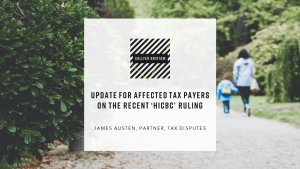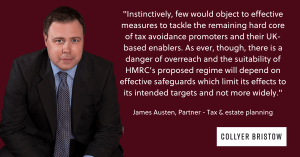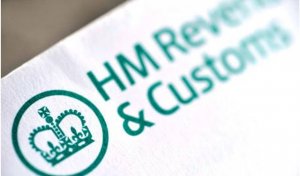- Tax disputes & investigations

Longer Reads
Litigation privilege does not apply to tax advice from accountancy firms, rules High Court
In a recent High Court case, a taxpayer (Sports Direct) tried to resist disclosing advice on a tax structure provided by Deloitte. Instead of legal advice privilege, Sports Direct tried to rely on litigation privilege, arguing that the structure had been in place for the purpose of responding to the anticipated threat of litigation from the tax authorities. Jonny Mitchell outlines the case.
3 minute read
Published 24 November 2020
Key information
- Services
- Tax disputes & investigations
When provided by an accountancy firm, advice on how to structure your affairs for tax purposes is not protected by legal advice privilege, and it may therefore need to be disclosed in a subsequent HMRC investigation or in litigation. This is the case even where the same advice, had it been provided instead by a law firm, would have been protected[1].
In a recent High Court case[2], a taxpayer (Sports Direct) tried to resist disclosing advice on a tax structure provided by Deloitte. Instead of legal advice privilege, Sports Direct tried to rely on litigation privilege, arguing that the structure had been in place for the purpose of responding to the anticipated threat of litigation from the tax authorities.
The High Court rejected Sports Direct’s claim to litigation privilege over Deloitte’s advice. The judge ruled that the purpose of advice on a tax structure is primarily to achieve a tax benefit from that structure. The purpose is not to assist the taxpayer in defending anticipated claims from the tax authorities, even in circumstances where it is expected that the structure will be challenged.
Background
For the sake of administrative convenience, Sports Direct wanted to arrange its online sales from the UK to EU customers in such a way that it would always be accountable for the VAT on the sales in the UK, rather than in the numerous different countries of its customers. In 2010, following advice from Deloitte, Sports Direct put in place a structure to achieve this (the “2010 Structure”).
In June 2014, Sports Direct received an email from the French tax authority, seeking information on the tax treatment of its online sales. Though the email was not itself threatening, Sports Direct was by this point aware that similar tax structures in other company groups were being challenged by European tax authorities. Sports Direct provided witness evidence (accepted by the judge) saying that, from this point on, Sports Direct expected to end up in tax litigation.
Sports Direct sought Deloitte’s advice again, and in February 2015, a new structure was put in place (the “2015 Structure”). Sports Direct’s witness evidence said that the 2015 Structure was put in place “as part of [its] preparation to defend anticipated litigation” about its VAT arrangements, and that the 2015 Structure was “for the exclusive purpose of responding to the real and present threat of litigation that was anticipated from the French tax authority and other tax authorities.”
Whilst advising on the 2015 Structure, Deloitte produced three reports (dated January, April and July 2015) (the “Deloitte Material”) containing their recommendation to adopt the 2015 Structure and an explanation of its mechanics.
During its ongoing investigation into Sports Direct’s auditors, the Financial Reporting Council sought disclosure of the Deloitte Material from Sports Direct. Sports Direct resisted, asserting litigation privilege over the Deloitte Material.
The requirements of litigation privilege
The judge quoted the following summary of litigation privilege, which outlines three requirements that must be satisfied for litigation privilege to apply[3]:
“Communications between parties or their solicitors and third parties for the purpose of obtaining information or advice in connection with existing or contemplated litigation are privileged, but only when the following conditions are satisfied:
(a) litigation must be in progress or in contemplation;
(b) the communications must have been made for the sole or dominant purpose of conducting that litigation; and.
(c) the litigation must be adversarial, not investigative or inquisitorial.”
The judge focussed on the second requirement, asking himself: was the Deloitte Material written for the sole or dominant purpose of conducting anticipated litigation with the tax authorities?
The judge’s decision
The judge firstly noted that the anticipated litigation would be primarily over the 2010 Structure. The judge found that it was “impossible to conclude” that the purpose of the advice on the 2015 Structure was to assist in anticipated litigation about the 2010 Structure. The purpose of the advice was to put in place a new tax structure which stood a better chance of working than the 2010 Structure. If anything, the existence of the 2015 Structure would be “positively unhelpful” in litigation about the 2010 Structure, as it might indicate an acceptance that the 2010 Structure did not work properly.
Sports Direct’s witness evidence was clear, however, that it expected the litigation to cover, not just the 2010 Structure, but also the 2015 Structure, i.e. Sports Direct did not expect the tax authorities to simply accept the 2015 Structure, and it expected that the 2015 Structure, too, would be challenged. So, was the Deloitte Material written for the sole or dominant purpose of conducting that aspect of the anticipated litigation?
The judge reached a firm conclusion: “the answer is obviously “No””. Though his decision was based on the facts of this particular case, the judge’s conclusion was expressed in broad terms:
“A taxpayer who takes advice as to how to structure his affairs does not do so for litigation purposes. He does so because he wants to achieve a particular result for tax purposes… Even if it is contemplated that the particular structure will be likely to be attacked by the relevant tax authorities and that there will be litigation, the advice as to how to implement the new structure….is not primarily advice as to the conduct of the future possible litigation. It is primarily advice as to how to pay less tax…”
Comment
The judge’s conclusion is likely to apply to other instances of advice provided by accountancy firms about putting tax structures in place.
The case is a helpful reminder to taxpayers of the need to think through privilege considerations carefully when seeking tax advice if the taxpayer does not want the advice to be potentially disclosable in a subsequent HMRC investigation or in litigation.
[1] This was confirmed by the Supreme Court in R (Prudential plc) v Special Commissioner of Income Tax [2013] UKSC 1.
[2] Financial Reporting Council Ltd v Frasers Group Plc (formerly Sports Direct International Plc) [2020] EWHC 2607 (Ch).
[3] Paragraph 104 of Three Rivers DC v Bank of England (No 6) [2004] UKHL 48
Longer Reads
Litigation privilege does not apply to tax advice from accountancy firms, rules High Court
In a recent High Court case, a taxpayer (Sports Direct) tried to resist disclosing advice on a tax structure provided by Deloitte. Instead of legal advice privilege, Sports Direct tried to rely on litigation privilege, arguing that the structure had been in place for the purpose of responding to the anticipated threat of litigation from the tax authorities. Jonny Mitchell outlines the case.
Published 24 November 2020
Associated sectors / services
When provided by an accountancy firm, advice on how to structure your affairs for tax purposes is not protected by legal advice privilege, and it may therefore need to be disclosed in a subsequent HMRC investigation or in litigation. This is the case even where the same advice, had it been provided instead by a law firm, would have been protected[1].
In a recent High Court case[2], a taxpayer (Sports Direct) tried to resist disclosing advice on a tax structure provided by Deloitte. Instead of legal advice privilege, Sports Direct tried to rely on litigation privilege, arguing that the structure had been in place for the purpose of responding to the anticipated threat of litigation from the tax authorities.
The High Court rejected Sports Direct’s claim to litigation privilege over Deloitte’s advice. The judge ruled that the purpose of advice on a tax structure is primarily to achieve a tax benefit from that structure. The purpose is not to assist the taxpayer in defending anticipated claims from the tax authorities, even in circumstances where it is expected that the structure will be challenged.
Background
For the sake of administrative convenience, Sports Direct wanted to arrange its online sales from the UK to EU customers in such a way that it would always be accountable for the VAT on the sales in the UK, rather than in the numerous different countries of its customers. In 2010, following advice from Deloitte, Sports Direct put in place a structure to achieve this (the “2010 Structure”).
In June 2014, Sports Direct received an email from the French tax authority, seeking information on the tax treatment of its online sales. Though the email was not itself threatening, Sports Direct was by this point aware that similar tax structures in other company groups were being challenged by European tax authorities. Sports Direct provided witness evidence (accepted by the judge) saying that, from this point on, Sports Direct expected to end up in tax litigation.
Sports Direct sought Deloitte’s advice again, and in February 2015, a new structure was put in place (the “2015 Structure”). Sports Direct’s witness evidence said that the 2015 Structure was put in place “as part of [its] preparation to defend anticipated litigation” about its VAT arrangements, and that the 2015 Structure was “for the exclusive purpose of responding to the real and present threat of litigation that was anticipated from the French tax authority and other tax authorities.”
Whilst advising on the 2015 Structure, Deloitte produced three reports (dated January, April and July 2015) (the “Deloitte Material”) containing their recommendation to adopt the 2015 Structure and an explanation of its mechanics.
During its ongoing investigation into Sports Direct’s auditors, the Financial Reporting Council sought disclosure of the Deloitte Material from Sports Direct. Sports Direct resisted, asserting litigation privilege over the Deloitte Material.
The requirements of litigation privilege
The judge quoted the following summary of litigation privilege, which outlines three requirements that must be satisfied for litigation privilege to apply[3]:
“Communications between parties or their solicitors and third parties for the purpose of obtaining information or advice in connection with existing or contemplated litigation are privileged, but only when the following conditions are satisfied:
(a) litigation must be in progress or in contemplation;
(b) the communications must have been made for the sole or dominant purpose of conducting that litigation; and.
(c) the litigation must be adversarial, not investigative or inquisitorial.”
The judge focussed on the second requirement, asking himself: was the Deloitte Material written for the sole or dominant purpose of conducting anticipated litigation with the tax authorities?
The judge’s decision
The judge firstly noted that the anticipated litigation would be primarily over the 2010 Structure. The judge found that it was “impossible to conclude” that the purpose of the advice on the 2015 Structure was to assist in anticipated litigation about the 2010 Structure. The purpose of the advice was to put in place a new tax structure which stood a better chance of working than the 2010 Structure. If anything, the existence of the 2015 Structure would be “positively unhelpful” in litigation about the 2010 Structure, as it might indicate an acceptance that the 2010 Structure did not work properly.
Sports Direct’s witness evidence was clear, however, that it expected the litigation to cover, not just the 2010 Structure, but also the 2015 Structure, i.e. Sports Direct did not expect the tax authorities to simply accept the 2015 Structure, and it expected that the 2015 Structure, too, would be challenged. So, was the Deloitte Material written for the sole or dominant purpose of conducting that aspect of the anticipated litigation?
The judge reached a firm conclusion: “the answer is obviously “No””. Though his decision was based on the facts of this particular case, the judge’s conclusion was expressed in broad terms:
“A taxpayer who takes advice as to how to structure his affairs does not do so for litigation purposes. He does so because he wants to achieve a particular result for tax purposes… Even if it is contemplated that the particular structure will be likely to be attacked by the relevant tax authorities and that there will be litigation, the advice as to how to implement the new structure….is not primarily advice as to the conduct of the future possible litigation. It is primarily advice as to how to pay less tax…”
Comment
The judge’s conclusion is likely to apply to other instances of advice provided by accountancy firms about putting tax structures in place.
The case is a helpful reminder to taxpayers of the need to think through privilege considerations carefully when seeking tax advice if the taxpayer does not want the advice to be potentially disclosable in a subsequent HMRC investigation or in litigation.
[1] This was confirmed by the Supreme Court in R (Prudential plc) v Special Commissioner of Income Tax [2013] UKSC 1.
[2] Financial Reporting Council Ltd v Frasers Group Plc (formerly Sports Direct International Plc) [2020] EWHC 2607 (Ch).
[3] Paragraph 104 of Three Rivers DC v Bank of England (No 6) [2004] UKHL 48
Associated sectors / services
- Tax disputes & investigations
Need some more information? Make an enquiry below.
Enjoy reading our articles? why not subscribe to notifications so you’ll never miss one?
Subscribe to our articlesMessage us on WhatsApp (calling not available)
Please note that Collyer Bristow provides this service during office hours for general information and enquiries only and that no legal or other professional advice will be provided over the WhatsApp platform. Please also note that if you choose to use this platform your personal data is likely to be processed outside the UK and EEA, including in the US. Appropriate legal or other professional opinion should be taken before taking or omitting to take any action in respect of any specific problem. Collyer Bristow LLP accepts no liability for any loss or damage which may arise from reliance on information provided. All information will be deleted immediately upon completion of a conversation.
Close


































